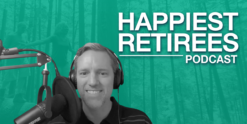Investment performance is important, but there’s so much more
Retirement is one of the Top 10 most stressful life events, according to the psychiatrists Thomas Holmes and Richard Rahe. As someone who recently began unretirement (or semiretirement), I concur. But it seems to me — as well as retirement analysts, retirement coaches and financial advisers I interviewed for this column — financial advisers could be doing a lot more to make retirement less stressful for their clients and more fulfilling.
That would mean switching from their typical myopic focus on investment performance and accumulating assets to what’s called “comprehensive retirement planning” or what MIT AgeLab chief and MarketWatch columnist Joseph Coughlin calls “longevity planning.”
Retirement planning isn’t just about ‘The Number’
As Bruce Hiland, co-author of “Retiring?” told me in my previous unretirement column, preparing for retirement “doesn’t lend itself to spreadsheets and PowerPoint presentations. When are you going to retire? What are you going to do when you retire? Where are you going to live? How are you going to live? That’s serious stuff.”
Preparing for retirement is also about things like knowing strategies for withdrawing from savings wisely and tax-efficiently (decumulation), finding meaning and purpose, exploring part-time work and entrepreneurship, understanding the ins and outs of Social Security and Medicare and handling caregiving responsibilities.
“I think many financial advisers are doing a quarter of their job, being so focused on money,” said Robert Laura, a former financial adviser and the Ann Arbor, Mich.-based president of the Retirement Coaches Association. “If we send people off into retirement with this giant binder full of charts and numbers, that doesn’t help them replace their work identity, feel connected and stay relevant.”
Tony Hixon, a Findlay, Ohio, partner of Hixon Zuecher Capital Management and author of “Retirement Stepping Stones,” blames advisers’ narrow view of retirement planning on “a lack of our industry making a meaningful push to educating financial advisers to help retirees transition to a life of significance beyond their careers.”
ROL (Return on Life), not ROI
Mitch Anthony, author of “The New Retirementality: Fifth Edition” and a Rochester, Minn., consultant to financial advisers, says money pros need to help clients with ROL (Return on Life) — getting the best life possible with the money you have — rather than ROI (Return on Investment).
The financial services industry, he told me, has “all been money-maniacal.”
Retire Early. Build Wealth. Feel Secure.
Anthony added: “I’m trying to gct the advice community to work on what the money is actually going to be used for. At the end of the day, it’s about people they [clients] love and places they love and things they love to do.” His firm trains advisers on what Anthony calls “life-centered financial planning.”
Said Cynthia Hutchins, a former financial adviser who’s been director of financial gerontology at Bank of America Merrill Lynch since 2013: “It really comes down to life priorities, rather than just performance and accumulating as much money as you possibly can.”
Since I began my unretirement in January 2022, I’ve been reading lots about this new world of retirement, mixing part-time work with finding purpose. Two articles, written for financial advisers, were spot-on about reforming retirement planning.
Reframing retirement planning
In her Employee Benefit News article “Why good retirement planning is about much more than money,” said Amy Ouellette, a Philadelphia-based Certified Financial Planner and senior vice president of retirement services for Vestwell, a savings and investment platform that offers workplace savings plans. Advisers need to consider three factors to bring clarity to what it means to retire, she said. They are: identity and purpose, connection and aging, and care.
“It’s about how you design your life as you approach retirement,” Ouellette told me, as well as the financial components.
David Stone, the San Francisco founder and chief executive of RetireOne (a platform for fee-based insurance solutions), noted in his WealthManagement.com piece “Reframing the Retirement Conversation” that the idea isn’t to help clients build a huge pile of wealth they hoard; it’s to help them live their best possible life.
“Most investment advisers tend to manage money for total return and growing the nest egg,” Stone said. He’d like to see advisers spend more time helping people have better retirements, which may mean spending some of their savings.
The big gaps in retirement advice
Research from the Hearts & Wallets financial services research firm has found big gaps between what preretirees and retirees want from financial advisers and what they’re getting.
The firm’s CEO, Laura Varas, told me the gaps include: insights about working in retirement, spending on housing and withdrawing money from financial accounts.
Just 6% of client experiences in Hearts & Wallets studies fully addressed real estate. “For the average person 55 and up, about 40% of their annual monthly spending is on housing,” Varas said. But, her research found, retirees spending less on housing — often through downsizing their homes — have stronger feelings of financial well-being and less anxiety than other retirees.
Yet, in 2020 research from the Academy for Home Equity in Financial Planning of the University of Illinois at Urbana-Champaign 25% of financial service professionals surveyed said either their firm prohibited them from providing advice about mortgages, home-equity loans and reverse mortgages or they were unsure if they could.
Only 48% of older people with financial plans who Hearts & Wallets surveyed had received recommendations for withdrawing income in retirement across multiple accounts. This topic was the top advice gap for preretirees.
Is the compensation model part of the problem?
One reason some advisers don’t offer decumulation advice: the larger the amount of clients’ assets they manage, the more they earn.
So, there’s a perceived disincentive to advice on pulling money out. “The conflict of interest is real,” said Anthony.
Wes Moss, (CERTIFIED FINANCIAL PLANNER™) who is managing partner of Capital Investment Advisers and author of “What the Happiest Retirees Know” said: “If an adviser is worried about having people take money out because it’s less money to manage, that’s an adviser that should never be allowed to practice in our industry.”
How some advisers are helping
Some financial advisers, however, are beginning to help people prepare for retirement beyond building up their investment portfolios. They’re often doing it in one of two ways.
One way is partnering with professional retirement coaches, life coaches or others with expertise in taxes, Social Security or Medicare.
Hixon hired a life coach at his wealth management firm in January 2022. That coach, a former dentist and client named Scott Miller, is now a Certified Professional Retirement Coach who has offered two sold-out workshops (cost: $149; $249 for couples). Miller also provides Hixon’s firm’s clients with private coaching ($100 an hour, typically for three to five sessions).
The most popular topics at his workshops have been social connections and devising a Plan B for retirement. Plan B is about going back to work part time if you get bored after not working in retirement.
Missing work life and losing your work identity in retirement is a real problem for some people. “One retired doctor told me ‘I went from Who’s Who to Who’s He?’” said Anthony.
The Retirement Coaches Association, which offers the Certified Professional Retirement Coach designation, has just 300 members, typically charging around $125 or $150 an hour. But there are likely over 1,000 retirement coaches in America, noted Laura.
Over the next two years, he predicts, more financial services firms will partner with retirement coaches. “They’re going to be forced to,” Laura said.
Pivoting to include purpose
The other way financial advisory firms are pivoting is by having advisers ask clients about their retirement priorities and then helping with them.
Small- and medium- size firms seem to be leading this charge. Moss said his advisers talk with preretirees and retired clients about their core pursuits and socialization. “We did not do that even five years ago,” Moss told me.
Lazetta Rainey Braxton, founder and CEO of Lazetta and Associates in Brooklyn, told me her firm is “teasing out human capital as a core part of financial planning” — talking with clients about finding meaning and purpose through part-time work in retirement.
Merrill Lynch is also adopting this human-centered strategy for retirement planning based on its studies around seven life priorities (family, work, health, home, giving, leisure and finances) and its Preparing for Longevity Checklist — with mixed success.
The firm’s younger advisers, Hutchins said, are being trained to approach their clients this way. “It’s the older ones that are pushing back a little bit,” she noted.
But, she added, “I’m finding more and more, they’re willing to learn. So, I don’t get nearly the pushback I did seven years ago, which is great news. We’re turning the tide.”
What the future holds
Interest by financial advisers to broaden their scope of retirement planning beyond accumulating assets is growing.
“If you look at the agendas for adviser conferences over the last five years, they’ve switched from just pure dollars and cents to 50% psychology and 50% financial,” said Laura. In five years, he expects, “there will be a retirement coach hooked in with every single advisory firm.”
Advisers who don’t understand the need to help clients prepare for retirement by addressing their core values, Laura said, will pay the price.
“I encourage consumers to push back and say, ‘I don’t just want to talk about money.’ And when their adviser can’t do it, they’re going to move.”
The U List
In “The View From Unretirement” column, I sometimes share recommendations of new books, films, TV shows and podcasts I think can help people navigate unretirement. But this time, I want to depart from that slightly.
I’d like to share profound words I heard from New York University marketing professor and provocateur Scott Galloway in his recent South by Southwest conference presentation. They weren’t about unretirement per se, but they’re relevant to people looking for happiness in this stage of life. (I suspect Galloway’s entire presentation will be on YouTube soon.)
Galloway said: “The question I get asked most is, ‘What is the profound opportunity coming out of COVID? What’s the big unlock?’ I believe this is the unlock…I encourage people to recognize that the opportunity is to establish in weeks what might otherwise take years — and that is the repair and cementing of key relationships.
“So, three questions: 1) Is this an opportunity to pivot to becoming a caregiver for somebody? 2) Do you have the relationship with your siblings that you want? And finally, have you made the requisite investments in friendships, or have you let competitiveness or perceived slights or other bull**** get in the way?”
Read the full MarketWatch Article here
This information is provided to you as a resource for informational purposes only and is not to be viewed as investment advice or recommendations. Investing involves risk, including the possible loss of principal. There is no guarantee offered that investment return, yield, or performance will be achieved. There will be periods of performance fluctuations, including periods of negative returns and periods where dividends will not be paid. Past performance is not indicative of future results when considering any investment vehicle. This information is being presented without consideration of the investment objectives, risk tolerance, or financial circumstances of any specific investor and might not be suitable for all investors. This information is not intended to, and should not, form a primary basis for any investment decision that you may make. Always consult your own legal, tax, or investment advisor before making any investment/tax/estate/financial planning considerations or decisions. Investment decisions should not be made solely based on information contained in this article. The information contained in the article is strictly an opinion and for informational purposes only and it is not known whether the strategies will be successful. There are many aspects and criteria that must be examined and considered before investing.













